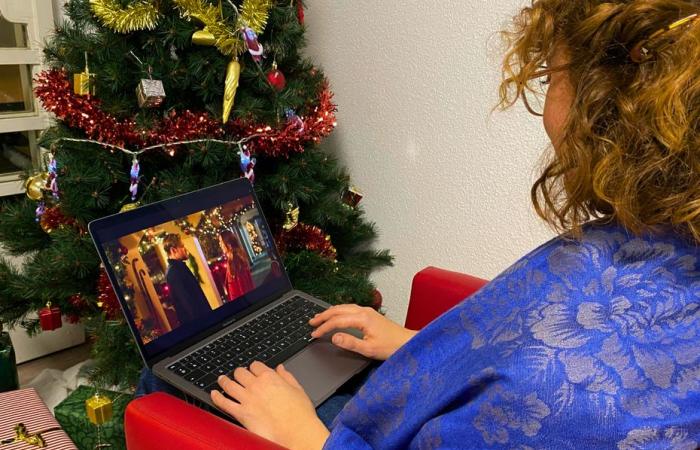
With their predictable love stories and stereotypes, Christmas films please as much as they divide. While some love them for their comforting side, others call for more diversity and modernity.
Company
From daily life to major issues, discover the subjects that make up local society, such as justice, education, health and family.
France Télévisions uses your email address to send you the “Society” newsletter. You can unsubscribe at any time via the link at the bottom of this newsletter. Our privacy policy
Once upon a time, there was a young single woman who hated Christmas. But, one day, during a walk in New York or a weekend in her hometown, she will meet the ideal man, as handsome as he is intelligent.
Then, in a snap of his fingers, after a carriage ride and a tasting of hot chestnuts at the Christmas market, he will restore his taste for this holiday. This is how they will end up happy until the end of their days.
It’s been almost two months since stories like this hit the small screen. In France, it was TF1 which opened the Christmas film ball by broadcasting My Christmas fairy tale from Monday October 14. And more than a million viewers responded.
Often, they are considered clichés, even accused of nonsense… But who has never been lulled by one of these North American feature films?
Wrapped up in a blanket, biscuit in one hand and hot chocolate in the other…
For the past week, Aurélie and her 11-year-old son have been on the lookout for new Christmas films to sink their teeth into. For a few days, they ate it with romantic sauce. The kind of story where you know the ending from the first minutes.
“But yesterday, we said stop. We wanted to see other things than these love stories that always tell us the same thing”she says. So, neither one nor two, they wandered from video on demand (VOD) platform to platform.
Both in search of films telling the Christmas spirit without a woman and a man necessarily falling in love at the end.
Aurélie assures that the search did not take long. In a few clicks, she says she came across a multitude of feature films with different plots. Of Grinch, Who traces the story of a grumpy cynic on a mission to steal Christmas, Santa & Cie, the fantastic comedy written and directed by Alain Chabat in 2017:
“On platforms, everything is a question of algorithm”specifies the one who is also director of the Cannes Cinema association. For her, the more we watch romantic Christmas films, the more VOD platforms offer similar ones.
She continues: “We have the right to like whatever we want to like and the diversity of platforms allows us to have access to a whole bunch of different films, without locking ourselves into a category if we play a little with the algorithm.”
We can only note the distressing monopoly of heterosexual norms in Christmas films.
Marie, president of the Les Culottées association.
But you still need to have access to these platforms. Because, on classic television screens, fashion seems to have remained romantic intrigues, the final image of which is that of a man kissing a woman, against the backdrop of snowy landscapes.
In any case, this is the observation made by the Les Culottées association. “The slightest exception becomes a real event in the LGBT community, but is unfortunately confined to it and remains ignored by the general public” says Marie, the president.
An opinion shared by Amérlie Amilhau, psychologist in Nice:“bMany Christmas films are indeed fueled by gender stereotypes. For example, women are always very thin and men muscular.”
However, she assures that these end-of-year feature films are often “Proust’s madeleines” for those who watch them. “These are films where we already know the ending, we always have a feeling of déjà vu. This creates positive nostalgia. One Christmas film always reminds us of another, and that’s very comforting”, believes the psychologist.
Amélie Amilhau nevertheless recognizes that this madeleine is starting to gather dust a little: “These stories rarely show a modern and progressive society. Often, we see women abandoning their professional careers in favor of love and, homosexual characters, are regularly caricatured and reduced to the role of best friend.”
We like watching love stories because attachment is one of the primary needs of human beings.
Amérlie Amilhau, psychologist in Nice.
Despite everything, these films, as cliché as they may be, are always more successful with the general public. Thus, dor ten years, their broadcast has started a little earlier each year.
She also maintains that not everything in these stories is to be thrown away:“These are intrigues which also advocate values of solidarity and connection. And that can’t do any harm.”
> Find films of all genres on France.tv!





